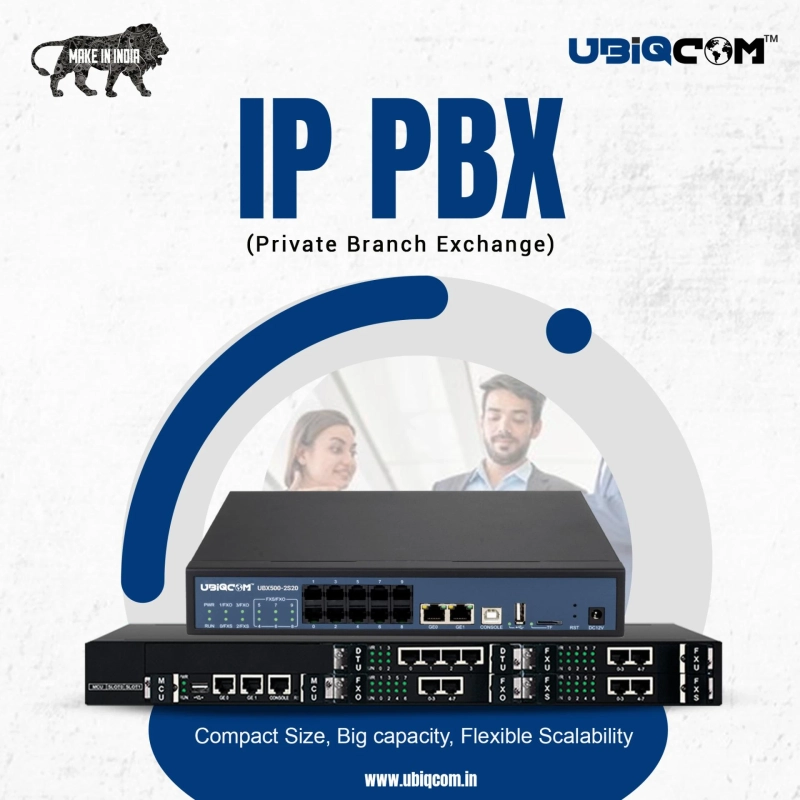In today’s fast-paced corporate world, effective communication is critical for business success. Traditional phone systems often fall short in meeting modern business needs, leading organizations to adopt IP PBX solutions. IP PBX (Internet Protocol Private Branch Exchange) is a telecommunication system that uses internet protocols to manage internal and external calls within an organization. It integrates voice, video, and data, offering a more flexible and cost-effective communication platform.
What is IP PBX?
IP PBX is a modern phone system that allows businesses to route calls over the internet instead of traditional phone lines. Unlike conventional PBX systems, which rely on analog or digital phone lines, IP PBX uses VoIP (Voice over Internet Protocol) technology. This means that calls are transmitted as data packets over an IP network, providing greater scalability, reduced costs, and advanced features.
Key Features of IP PBX
- Cost Efficiency – IP PBX reduces long-distance and international call costs by routing calls over the internet. Companies can also consolidate voice and data networks, cutting infrastructure expenses.
- Scalability – Adding or removing extensions is simpler with IP PBX. Whether your business is growing or downsizing, the system can adapt without major hardware changes.
- Unified Communication – IP PBX integrates voice, video conferencing, instant messaging, and email notifications, creating a seamless communication experience.
- Remote Access – Employees can connect to the system from anywhere using softphones or mobile apps, ensuring uninterrupted communication for remote teams.
- Advanced Call Management – Features like call forwarding, auto-attendant, voicemail-to-email, call recording, and IVR (Interactive Voice Response) enhance productivity and customer service.
Benefits of Using IP PBX for Businesses
- Enhanced Productivity – Employees can handle calls efficiently, use conferencing tools, and access features like call transfer or call queues, improving workflow.
- Flexibility and Mobility – IP PBX allows staff to stay connected on mobile devices or laptops, ensuring business operations continue seamlessly outside the office.
- Professional Image – Features like auto-attendant, custom greetings, and call routing improve customer experience and present a polished corporate image.
- Easy Maintenance – Modern IP PBX systems are software-driven, making updates, troubleshooting, and monitoring much easier compared to traditional PBX systems.
- Integration with Business Tools – Many IP PBX solutions integrate with CRM, ERP, and other enterprise applications, streamlining processes and improving customer engagement.
How to Choose the Right IP PBX System
When selecting an IP PBX, businesses should consider:
- Number of Extensions: Ensure the system can handle current and future communication needs.
- Features: Look for advanced call management, conferencing, and mobility support.
- Compatibility: Ensure it integrates with existing network infrastructure and business software.
- Vendor Support: Reliable technical support is crucial for smooth operation.
- Security: Choose a system with robust encryption and security measures to protect sensitive communications.
Conclusion
IP PBX systems are transforming business communication by combining the power of VoIP with advanced management features. By offering cost savings, flexibility, and improved efficiency, IP PBX empowers businesses to stay connected in an increasingly digital and remote-oriented world. Whether you are a small startup or a large enterprise, investing in a robust IP PBX system can significantly enhance your communication strategy and overall productivity.



